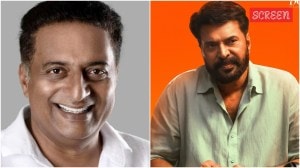Dancing with Sena, Cong govt bans Mumbai bar girls
You can’t judge Mumbai and the rest of Maharashtra by different yardsticks, the Law and Judiciary Department of the state government ru...

You can’t judge Mumbai and the rest of Maharashtra by different yardsticks, the Law and Judiciary Department of the state government ruled today. So Mumbai’s dance bars will have to go too.
The decision to shut down what is an iconic Mumbai industry was taken unanimously by ministers of the Democratic Front cabinet late this evening at the Vidhan Bhavan where the state legislature’s budget session is in progress.
However, no date has been fixed for the closure: bars cannot be forced shut until laws are amended.
That could take a month, or more. Bar owners will meet on Wednesday to decide their course of protest. There are about 1,300 dance bars in the state: 700 in Mumbai, 650 in Navi Mumbai, Raigad, Thane and the rest of Maharashtra. Most of those outside Mumbai are still working, pending a formal order.
The revenue loss for the government: Rs 10-12 lakh per annum from each of the state’s licenced dance bars, including liquor/restaurant licence fees, entertainment tax, performance licence fees, stage licence fees and excise fees, besides income tax, sales tax, etc.
Tonight, customers resigned themselves to a future nightlife of saada (ordinary) bars. ‘‘I’m getting into the construction business,’’ announced president of the Fight For Rights Bar Owners’ Association and bar owner Manjit Singh Sethi on his Nokia. Other owners got the joke; it’s merely a question of a new business venture for these traders, a good 65-70 per cent of them from the Shetty community.
At Karishma, Sethi’s flashy bar in Dadar, central Mumbai, sombre girls—each knew somebody who would be reduced to prostitution—discussed options like private shows at faraway Madh’s bungalow culture.
As their boss promised an aandolan to cameras in the backyard, gaggles of young women took turns at the phone. ‘‘I don’t know when,’’ said one over the thumping din of the music. ‘‘I’ll save.’’ The waiters were the most despondent.
‘‘The hotel industry cannot absorb the thousands of us,’’ said Babloo Shaikh, a Bengali who has lived in Mumbai twenty years. ‘‘We’ll have to work for less than Rs 6,000 or Rs 7,000.’’
The move to bring the moral police into the decades-old dance bars began on March 30, when Deputy Chief Minister R R Patil suddenly announced in the Assembly during a debate that those outside Mumbai would be shut. ‘‘These bars are corrupting the moral fibre of our youth and culture,’’ Patil alleged.
To decide the fate of Mumbai’s bars, he appointed a committee under Additional Chief Secretary (Home) A K D Jadhav. ‘‘The decision was taken unanimously by the Cabinet,’’ said Patil. ‘‘Violation will invite three months’ imprisonment.’’ Patil also claimed in the House that just four per cent of the girls in the industry belong to Maharashtra. ‘‘We’ll think about their rehabilitation,’’ he said.



- 01
- 02
- 03
- 04
- 05




























